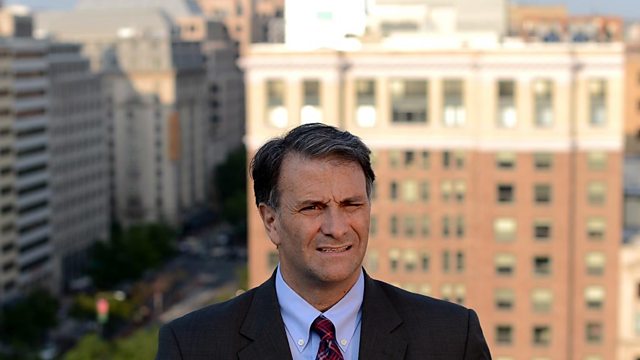Follow the Money
What happens when money meets power? Justin Rowlatt discovers how America's 3.3 billion dollar political lobbying industry uses hard cash to buy influence.
An alternative to debt, doubt and decline - that's what the Republican Party aims to offer America's voters at its national convention in Florida this week - the formal launch of Mitt Romney's presidential campaign. Yet many Americans are distinctly dubious about the source of some of the cash that helps fund American politics.
They worry about the effect of the hundreds of millions of dollars spent in Washington by America's small army of political lobbyists.
Jack Abramoff describes himself as America's most notorious lobbyist after he was arrested for corruption and sentenced to six years in prison. Now he wants to clean up his former industry.
Justin Rowlatt asked him how he used to find ways to persuade politicians to change their policies.
Jack Abramoff argues that the problem isn't the rogues like him who cross the line into illegal behaviour, he believes the problem is that the current system allows lobbyists to exert undue influence without breaking any rules.
So what do his former colleagues have to say about that? Who better to answer than the man who lobbies on behalf of the lobbyists themselves, Howard Marlow, president of the ALL, the American League of Lobbyists?
Justin Rowlatt asks Mr Marlowe if he can understood why so many Americans are concerned about the lobbying industry's practices - and its perceived influence over elected politicians.
Plus: the BRICs are an exclusive club. When the Goldman Sachs economist Jim O'Neill coined the acronym he chose the four countries - Brasil, Russia, India and China - on the grounds that their size and rapid economic growth would make them decisive players in the shift of global economic power towards the developing world.
But can you still claim to be in the club when your growth rate collapses? That's what's happened in Brazil. Economists reckon it will grow less than two per cent this year and the Brazilian government has responded with an economic stimulus plan and this week cut interest rates to record lows.
So how is this likely to affect the average Brazilian? Paulo Cabral reports from Brazil.
(Image: Jack Abramoff. Credit: AFP / Getty Images)
Last on
More episodes
Previous
Broadcasts
- Thu 30 Aug 2012 07:32GMT大象传媒 World Service Online
- Thu 30 Aug 2012 11:32GMT大象传媒 World Service Online
Podcast
-
![]()
Business Daily
The daily drama of money and work from the 大象传媒.


